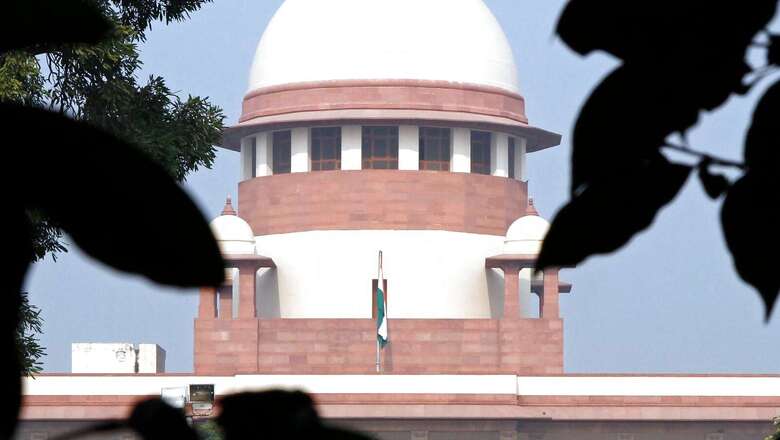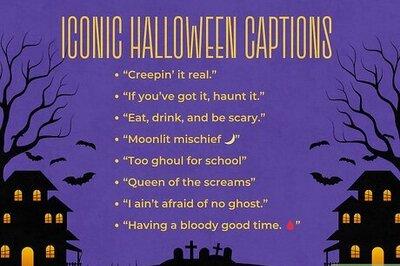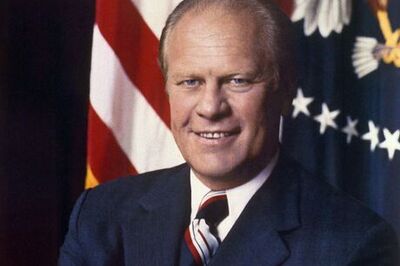
views
Courts have no power to add restrictions to the ones already stipulated under Article 19(2) of the Constitution of India depicting free speech, the Supreme Court (SC) held, adding that courts are instead “gate-keepers” and “conscience keepers” that strictly check the entry of restrictions into the temple of fundamental rights.
The SC judgment by a bench comprising Justices S Abdul Nazeer, BR Gavai, AS Bopanna and V Ramasubramanian stated that it is not within its domain to add one or more restrictions than what is already found in the provision.
This means that the eight restrictions on free speech which are stipulated in article 19(2) are exhaustive.
THE GANG-RAPE CASE
The court was hearing a plea filed by a man whose wife and daughter were allegedly gang-raped in July 2016 on a highway near Bulandshahr. He sought transfer of the case to Delhi and lodging of a first information report (FIR) against then Uttar Pradesh minister and Samajwadi Party leader Azam Khan for his controversial statement that the case was a “political conspiracy” because “the elections were near” and the “opposition was desperate”.
The court extrapolated the restrictions which are already present on free speech under the Constitution of India, while examining the ones in European countries, UK, USA, among others, adding that “the nature of restrictions on free speech imposed by law/judicial pronouncements even in countries where a higher threshold is maintained are almost similar”.
The bench, comprising Justice BV Nagarathna, authored a judgment on the issue.
The top court also held by way of a majority that statements made by a minister, even if traceable to any affairs of state, cannot be attributed vicariously to the government.
‘MEASURE WORDS’
Justice Nagarathna although held that greater restriction cannot be imposed on free speech; in case a minister makes disparaging statements in his “official capacity”, then such statements can be vicariously attributed to the government. It was added that whenever one or more fundamental rights appear to collide or seek preference over another, it will be decided on a case-to-case basis with well-established legal tools and thus additional restrictions cannot be placed on free speech under the guise of invoking ones fundamental rights.
Justice Nagarathna opined that public functionaries and other persons of influence and celebrities, having regard to their reach, real or apparent authority and the impact they wield on the public or on a certain section, owe a duty to the citizenry at large to be more responsible and restrained in their speech.
“They are required to understand and measure their words, having regard to the likely consequences thereof on public sentiment and behaviour, and also be aware of the example they are setting for fellow citizens to follow….While there are no infallible rules that can be formulated by the Court to define the precise threshold of acceptable speech, every citizen’s conscious attempt to abide by the Constitutional values, and to preserve in letter and spirit the culture contemplated under the Constitution will significantly contribute in eliminating instances of 71 societal discord, friction and disharmony, on account of disparaging, vitriolic and derogatory speech, particularly when made by public functionaries and/or public figures….”, she said.
FUNDAMENTAL RIGHTS
On the question of whether fundamental rights under Article 19 and 21 can be enforced against persons other than the state and its instrumentalities, the top court answered in the affirmative while relying on the landmark Justice KS Puttaswamy judgment. While doing so, it reproduced an excerpt from S Krishnan vs State of Madras: “Brush aside for a moment the pettifogging of the law and forget for the nonce all the learned disputations about this and that, and “and” or “or “, or “may” and “must “. Look past the mere verbiage of the words and penetrate deep into the heart and spirit of the Constitution.”
On the other hand, Justice Nagarathna stipulated that only those rights which have been statutorily recognized can be enforced against the state under Articles 19 & 21, except that they can be the basis for seeking common law remedies.
On the issue of whether a state is under an affirmative duty to protect the rights of a citizen under Article 21 even against a threat to the liberty of a citizen by the acts or omissions of another citizen or private agency, the Supreme Court held that the state will have the duty to do so.
Justice Nagarathna, on the other hand, stated that this duty is a negative one and the affirmative duty stems from the obligations which may require its interference in case the liberty or life of a citizen or person is threatened.
Read all the Latest India News here


















Comments
0 comment